For the first time, a team from the College of Management at National Sun Yat-sen University (NSYSU), formed of students of different majors and nationalities, participated in the regional competition in Asia for the Hult Prize. The Hult Prize is viewed as the equivalent of the Nobel Prize for business schools, and has been referred to as the “Nobel Prize for Students”. The team was one of the top six teams that made it into the finals, and have a high chance of representing NSYSU in the next round of competition in London. The Hult Prize was launched in 2009 and was first hosted by the United Nations Foundation in partnership with the Hult International Business School in the United States. It has since attracted over one million students from around the world. Each year, the Hult Prize selects a challenge topic, and the 2021 topic is “Food for Good”. The annual competition encourages students from colleges and universities around the world to engage in a global social issue and create a proposal on the topic. With the winning team being granted a $1 million seed capital to put their vision into action for the benefit of human civilization, every student is given the opportunity to make a difference in the world.
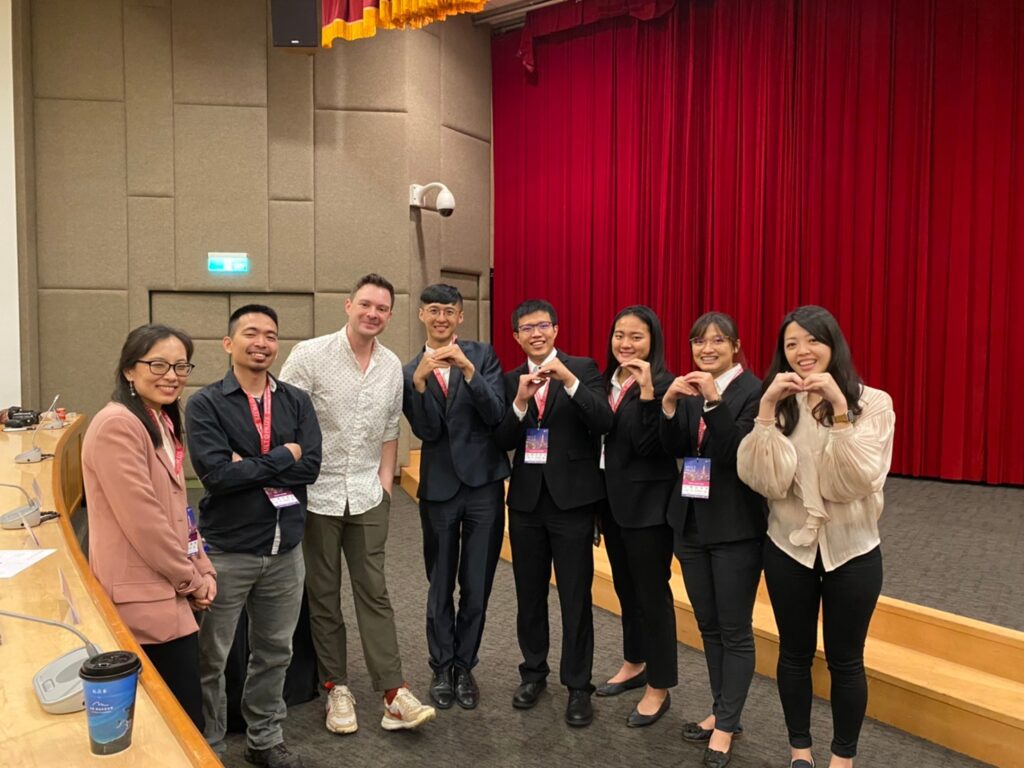
Team Members
The College of Management is committed to cultivating students into interdisciplinary and international management professionals. Gary Yuan, an IBMBA student from the College, joined forces with three other students from other colleges to form a team, Future Fish, and they brainstormed as a team for this year’s topic of “Food for Good”. The other three students are Lyn Suphanuch, a senior in the Department of Foreign Languages and Literature from Thailand; Berrica Tsai, a junior in the Department of Oceanography; and Bro Chuang, a senior in the Department of Electrical Engineering. Future Fish was selected from six groups after a preliminary round of auditions within NSYSU to represent the university in the Asia Pacific competition. Future Fish then competed against 30 teams from 14 universities, including National Taiwan University, National Tsing Hua University, National Cheng Kung University, and National Chengchi University, with a total of 120 students of 20 nationalities. Due to the diverse background of the team, they received more attention from the judges and were selected as one of the Top 6 in the final round. The judges clarified that Future Fish in fact took second place, and encouraged the team to fight for the spot to compete in the following international round.
Theme of the Start-up Business Proposal
Oceans make up 70% of the earth’s surface, and in the remaining 30% of space inhabitable by humans, more than 40% has been exploited by land-based agriculture, resulting in the increasing depletion of land resources. Therefore, Future Fish have proposed to include and transform the vast oceans into a supply chain for human food sources. Lyn Suphanuch, whose family is engaged in land-based fish farming in Thailand, came up with the idea of taking over her father’s business and assisting in the transformation of the business from land-based fish farming to sea-based net cage culture through the introduction of high technology. Berrica Tsai from the Department of Oceanography suggested the aquaculture of cobia, a high-protein seafood, as Taiwan is one of the few countries that have the technology to cultivate cobia, and the country’s warm climate is more suitable for the growth of cobia than other high latitude countries. To make more effective use of net cage culture, sea grasses that can absorb greenhouse gases can be planted next to the cages; oysters, which purify the water, and sea cucumbers, which consume fish excrement as nutrients, can be cultivated at the bottom of the cages. All these measures can work to transform a fishing net into a sustainable ecosphere.
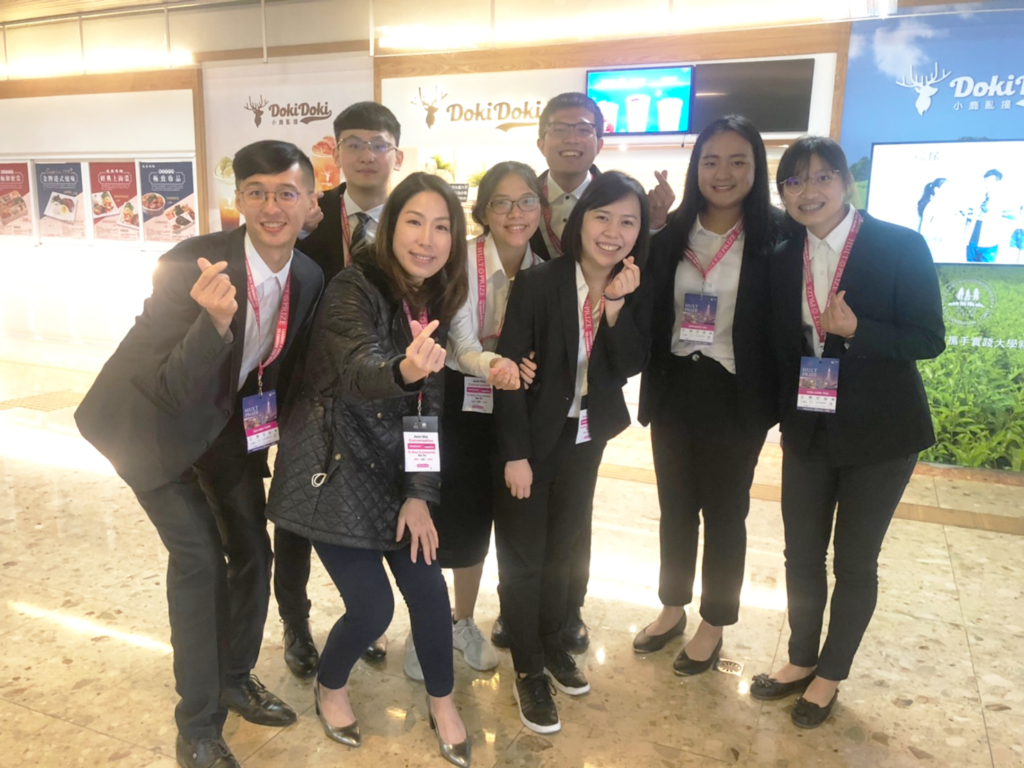
Fieldwork: Visiting fishermen in Changhua District
To understand better the development of the fishery industry, Future Fish visited fishermen in Changhua District to investigate the difficulties encountered by fishermen in the field at present. Mr. Yu-tung Hung, the Director of Changhua District Fishermen’s Association, who was awarded Ten Outstanding Young Persons Award for farming in Taiwan and has over 30 years of experience in the industry, provided the team with many valuable suggestions. He pointed out the fact that since many countries are already developing net cage culture, Future Fish needs to identify characteristics that will help them stand out. Fishery is on the way to becoming a sunset industry because no young blood is entering the industry; young people are reluctant to take over this business. Director Hung stated that the key to attracting young people to help transform the industry lies in the incentives Future Fish can provide. He praised the four students from NSYSU for effectively using net cage culture to create an independent ecosphere, which is an innovative idea and has the potential to start a new chapter in the industry. Another oyster farmer in Changhua District stated that in recent years, in addition to the reluctance of the younger generation to take over the work, the biggest pain point of the fishery industry has been that it is highly dependent on the climate, and nowadays people do not like work that is physically demanding and full of uncertainty caused by issues such as typhoons, frost damage, parasites, deoxygenation in farming areas and so on. These things have been causing problems for a lot of fishermen.
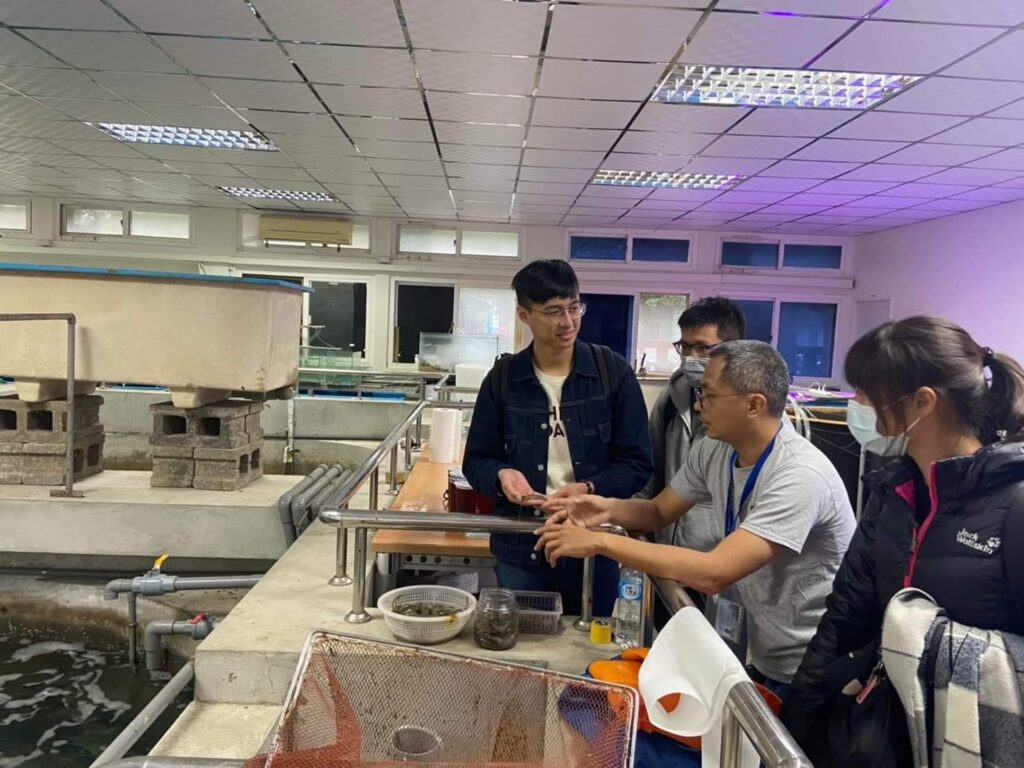
Hult Prize Regional Competition at National Taiwan University
The regional competition of the Hult Prize was held at National Taiwan University this year, and consisted of three rounds. In the first round, the teams were divided into groups for their first presentations, and in addition to Future Fish’s project, teams from other schools also came up with many refreshing ideas such as making artificial meat from beer lees and assisting and counseling disadvantaged farmers to raise and promote snails as a source of protein, to name a few. In the second round of the competition, the teams were required to discuss their projects with the judges, who decided which teams should advance to the third round. Among the judges, the Canadian judge, Taylor Scobbie, CEO of Impact Trade Corp., and the Taiwanese judge, Jessi Fu, General Manager of Impact Trade Corp., had both been part of the global winning team of the Hult Prize in 2015. They said, straightforwardly, that new entrepreneurs should focus on one business at a time and not do too many things at once, because of their limited resources and experience. They pointed out that many of the teams’ proposals were too complicated, which meant that people would question the feasibility of their ideas. Another judge, Miles Hu, a Chinese American who used to be the Senior Executive at General Electric and is now the principal of Whitesun International, explained that since each team only had four minutes to present, the ‘elevator pitch’ technique was particularly important, and presenting the key points well within four minutes was the key to advancement in the competition. He also said that many teams had good proposals, but the content of their presentations was complicated, which confused the audience.
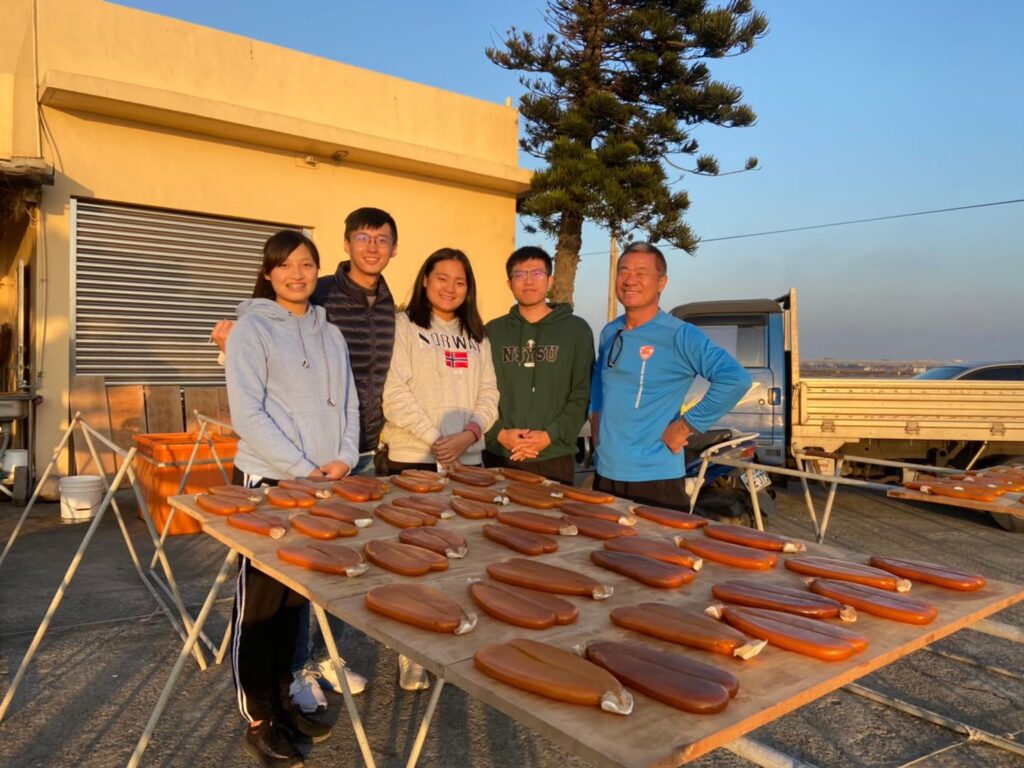
Only 6 out of 30 teams made it to the final round, with National Sun Yat-sen University’s Future Fish among them. The members of the team said that their hard work over the past five months had finally paid off. The organizer of the event also stated that it had not been easy for the team from the College of Management of NSYSU to achieve such a good result, since it was their first time participating in the competition. In Future Fish’s presentation, they proposed using AI technology and industrial technology to solve the pain points encountered by fishermen. The plan includes a more effective way to measure environmental water quality, adopting sophisticated industrial technology to facilitate the exchange of warm water at the surface and cold water at the bottom so that fish species can avoid the threat of diseases posed by poor environmental quality and ocean deoxygenation. Their idea of ‘prevention is better than cure’ was highly appreciated by the judges.
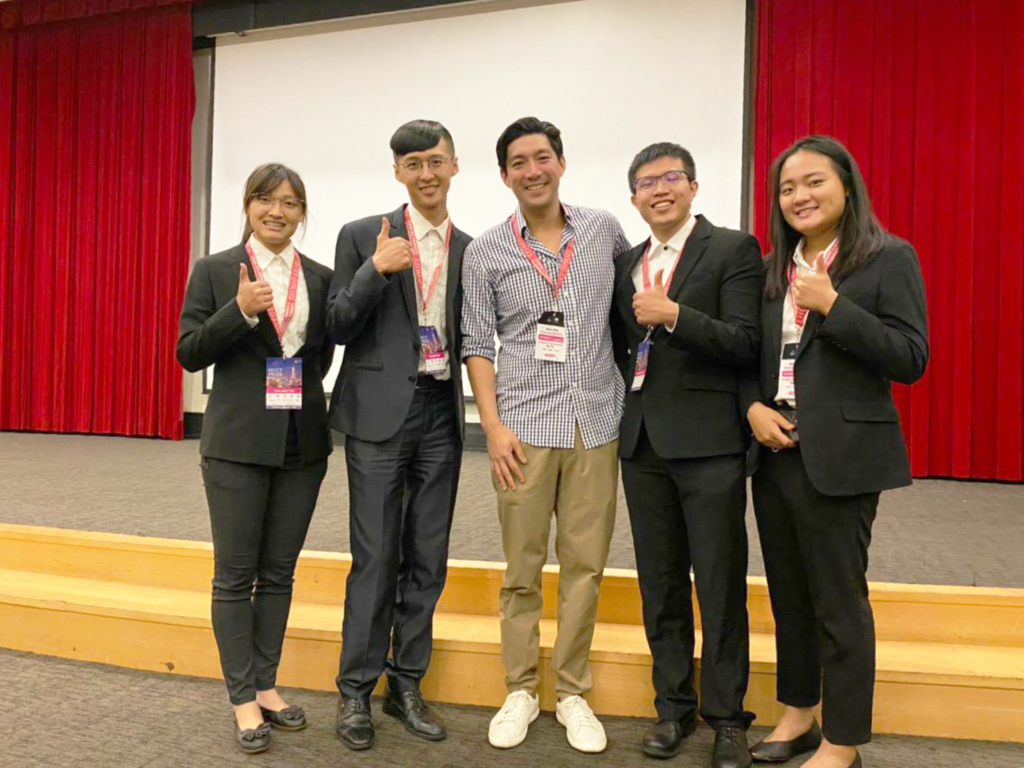
Gary Yuan, the student from IBMBA, suggested that students who wanted to participate in the competition in the future should work with students from different professional backgrounds as much as possible; this not only makes the diversity of the team composition more convincing to the judges, but also allows the team to acquire new viewpoints through the expertise of other teammates. Moreover, the professionality of the team will be better-rounded. The regional competition may have come to an end, but just like the mission of the Hult Prize – to make the world a better place through the small amount of power held by each young person – each participant will have improved during the competition regardless of whether or not he or she qualified for the next round, and the ambition to change the world will have intensified for all of them.
